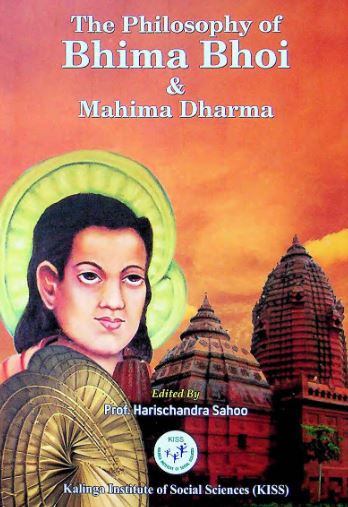The Philosophy of Bhima Bhoi and Mahima Dharma has long been revered for its profound teachings on spirituality, humanism, and social reform. In the recently published book by Harischandra Sahu, the essence of Bhima Bhoi’s philosophy and the core principles of Mahima Dharma are explored and analyzed in great detail.
Bhima Bhoi, a saint-poet from Odisha, India, was a prominent figure in the 19th century who composed numerous devotional songs and verses that reflect the essence of spirituality and equality. His teachings emphasize the importance of love, compassion, humility, and service to humanity. Through his poetry, Bhima Bhoi sought to break the barriers of caste, creed, and religion, advocating for a society based on equality and brotherhood.
In his book, Harischandra Sahu delves into the life of Bhima Bhoi and the historical context in which he lived. He explores the impact of Bhima Bhoi’s teachings on the social and religious fabric of Odisha and how they continue to resonate with people even today. Sahu also examines the core beliefs of Mahima Dharma, the religious movement founded by Bhima Bhoi, and how it has evolved over the years.
Mahima Dharma is a spiritual sect that follows the teachings of Bhima Bhoi and focuses on the worship of the Mahima Gosain, a formless deity believed to be the source of all creation. The followers of Mahima Dharma believe in the principle of Ahimsa (non-violence) and advocate for social justice, equality, and harmony among all beings.
The book delves into the philosophical underpinnings of Mahima Dharma, exploring its teachings on the nature of the self, the concept of karma, and the path to spiritual liberation. Sahu highlights the transformative power of Bhima Bhoi’s philosophy, which encourages individuals to cultivate inner virtues such as compassion, forgiveness, and selflessness.
One of the key themes of the book is the idea of self-realization and the importance of realizing one’s true nature as a spiritual being. Bhima Bhoi’s teachings emphasize the need to transcend the limitations of the ego and the material world in order to attain spiritual enlightenment. Through meditation, prayer, and service to others, followers of Mahima Dharma seek to achieve a deep connection with the divine and experience inner peace and contentment.
Sahu also explores the social impact of Bhima Bhoi’s teachings, particularly in the context of the caste system and social hierarchy prevalent in India. Bhima Bhoi advocated for the upliftment of the oppressed and marginalized communities and challenged the discriminatory practices that perpetuated social injustice. His philosophy of equality and social harmony continues to inspire social reform movements in Odisha and beyond.
In addition to his analysis of Bhima Bhoi’s philosophy, Sahu also provides insights into the contemporary relevance of Mahima Dharma in the modern world. He discusses the challenges facing the spiritual tradition and the efforts being made to preserve and promote its teachings in a rapidly changing society.
Overall, Harischandra Sahu’s book on the Philosophy of Bhima Bhoi and Mahima Dharma is a comprehensive and insightful exploration of the spiritual teachings of one of Odisha’s most revered saints. By delving into the profound wisdom of Bhima Bhoi and the transformative power of his philosophy, Sahu sheds light on the timeless relevance of his teachings in today’s world. This book is a valuable resource for anyone interested in exploring the rich spiritual heritage of Odisha and the profound insights of Bhima Bhoi.
Books Info
| Books name | Philosophy of Bhima Bhoi & Mahima Dharma, The |
| Editor | Harischandra Sahu, |
| No Of pages | 216 |
| Publisher | KISS Deemed to be University |
| Publication | 2020 |
| Printed At | Print Tech Offset |
| Distributor | NA |
Philosophy of Bhima Bhoi & Mahima Dharma, The Sample
Philosophy of Bhima Bhoi & Mahima Dharma, The Full Pdf Download

